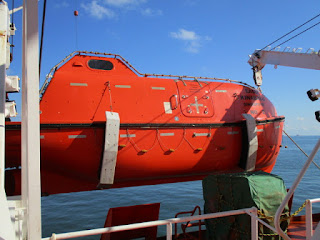CONTROLLING
Meaning of Controlling:
Controlling is one of
the managerial functions and it is an important element of the management
process. After the planning, organising, staffing and directing have been carried
out, the final managerial function of controlling assures that the activities
planned are being accomplished or not.
So the function of
controlling helps to achieve the desired goals by planning. Management must,
therefore, compare actual results with pre-determined standards and take
corrective action of necessary.
Control can be defined
as the process of analysing whether actions are being taken as planned and
taking corrective actions to make these to confirm to planning.
Nature of Controlling:
Based on the above definitions the following natures or
characteristics of controlling can be presented below:
1.
Control is a Function of Management:
Actually control is a
follow-up action to the other functions of management performed by managers to
control the activities assigned to them in the organisation.
2. Control is Based on Planning:
Control is designed to
evaluate actual performance against predetermined standards set-up in the
organisation. Plans serve as the standards of desired performance. Planning
sets the course in the organisation and control ensures action according to the
chosen course of action in the organisation.
3.
Control is a Dynamic Process:
It involves continuous review
of standards of performance and results in corrective action, which may lead to
changes in other functions of management.
4. Information is the Guide to Control:
Control depends upon the
information regarding actual performance. Accurate and timely availability of
feedback is essential for effective control action. An efficient system of
reporting is required for a sound control system. This requires continuing
monitoring and review of operations.
5. The Essence of Control is Action:
The performance of control is
achieved only when corrective action is taken on the basis of feedback
information. It is only action, which adjust performance to predetermined
standards whenever deviations occur. A good system of control facilities timely
action so that there is minimum waste of time and energy.
Principles of Controlling:
The followings are the principles of
controlling:
1. Objectives:
Controls must positively contribute to the
achievement of group goals by promptly and accurately detecting deviations from
plans with a view to making corrective action possible.
2. Interdependence of Plans and
Controls:
The principles of interdependence states that more
the plans are clear, complete and integrated, and the more that controls are
designed to reflect such plans, the more effectively controls will serve the
need of managers.
3. Control
Responsibility:
According to this principle, the primary responsibility
for the exercise of controls rests in the manager charged with the performance
of the particular plans involved.
4. Principal of Controls being in
Conformity to Organisation Pattern:
Controls must be designed so as to reflect the
character and structure of plans. If the organisation is clear and
responsibility for work done is well defined, control becomes more effective
and it is simple to isolated persons responsible for deviations.
5. Efficiency of Controls:
Control techniques and approaches are effectively
detect deviations from plans and make possible corrective actions with the
minimum of unsought consequences.
Limitations of Controlling:
A control system may be faced with the following limitations:
1. An organisation
cannot control the external factors such as government policy, technological
changes, fashion changes etc.
2. Control is an
expensive process because sufficient attention has to be paid to observe the
performance of the subordinates in the organisation. This requires an
expenditure of a lot of time and effort to be made.
3. Control system
loses its effectiveness in the organisation when standards of performance
cannot be defined in quantitative terms. For example, it is very difficult to
measure human behavior and employee morale in the organization.
4. The effectiveness
of control mainly depends on the acceptance of subordinates in the
organisation. They may resist control because they may feel that it will reduce
or curtail their freedom while in duty. It also loses its significance when it
is not possible to fix the accountability of the subordinates.
credit to:google images






Comments
Post a Comment